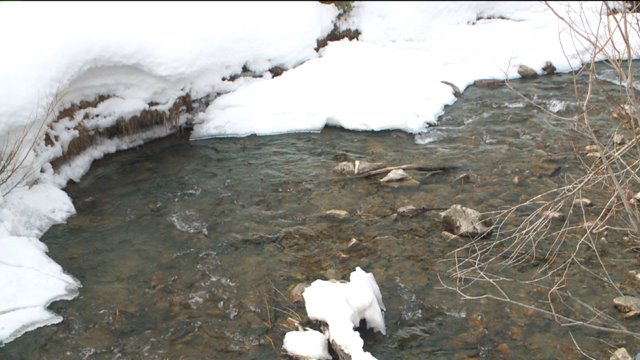SALT LAKE CITY -- Five degrees for six months: Those are numbers that cause serious concern for Utah water experts.
Brian McInerney, Hydrologist for the National Weather Service, said from August through January, northern Utah has averaged temperatures five degrees higher than normal.
"Which is incredibly significant when you talk about snow pack,” McInerney said.
McInerney said a system of high pressure has settled over Utah during the winter for four years now, forcing storms to the north and east.
He points out a deadly combination for Utah’s snow pack: fewer storms and warmer weather means much of the precipitation that has fallen has been rain, which is far less helpful than snow when it comes to filling reservoirs.
Salt Lake City's average high temperature in January is 37.5 degrees, with an average low of 22. So far for January 2015, the average high is 41.7 degrees, and the average low is 26 degrees. That makes snow scarce at lower elevations.
"You want it as low as possible down to the valleys," McInerney said. "You want it to stay as long as possible, and yet we're getting storms that are producing snow above 7,500 feet and rain below that."
Managers of Utah’s major water conservancy districts are already preparing for the worst.
Tage Flint, general manager of the Weber Basin Water Conservancy District, said he hoped for an above-average winter. The seven reservoirs he manages are sitting at 50 percent of their capacity.
“If the weather persists like this, we may talk about outdoor usage restrictions as we have before in the past,” Flint said, adding that Utahns tend to cooperate with voluntary restrictions.
But Flint adds that he and his colleagues have to plan for the possibility warming trends may continue due to global climate change.
"We do see the studies and know they say we will get more rain, less snow in the future, and we need to start planning for that,” Flint said.




